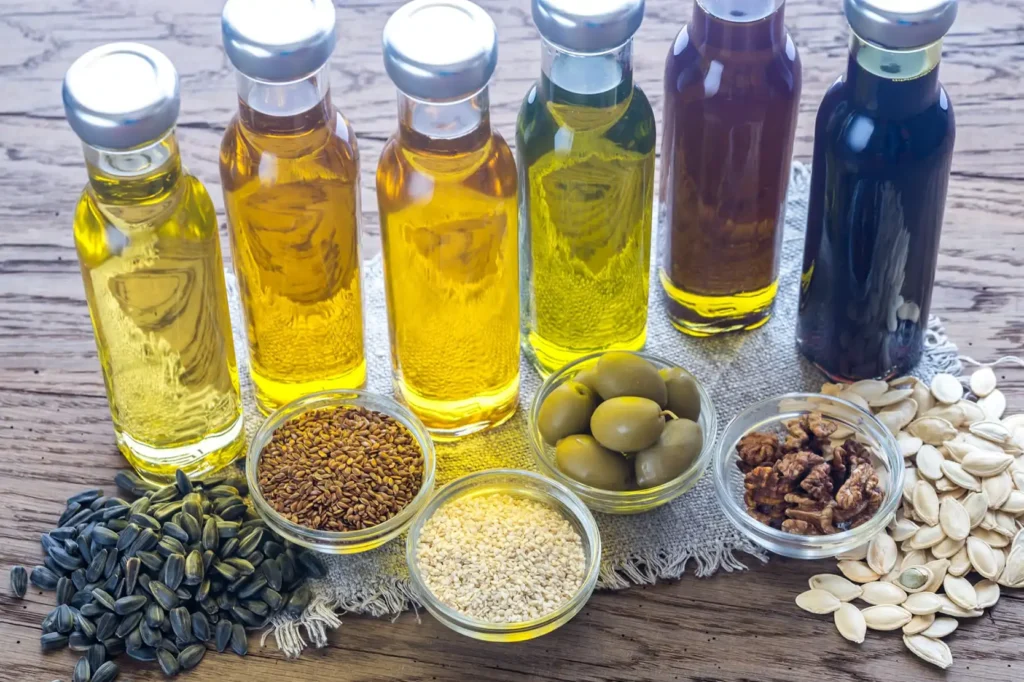Learn Doctors warn cooking oil colon cancer risks linked to omega-6 fatty acids in ultra processed foods. Learn how imbalances between omega-6 and omega-3 increase inflammation, potentially promoting tumor growth. Take steps to safeguard your well-being by understanding the impact of cooking oils on colon cancer today.
Introduction Doctors Warn Cooking Oil Colon Cancer:
Cooking oil, a staple in every kitchen, is now under scrutiny due to its potential link to colon cancer. An imbalance in omega-6 fatty acids, commonly found in vegetable oils used in ultra-processed foods, may increase inflammation and hinder the anti-cancer properties of omega-3 fatty acids. This imbalance, combined with a Western diet rich in ultra-processed foods, could be contributing to the alarming rise in colorectal cancer cases.
Recent studies indicate that cooking oils high in omega-6, such as soybean, corn, and sunflower oils, may create a chronic inflammatory environment in the body. This can allow cancerous mutations to thrive. Health experts emphasize balancing omega-6 with omega-3 fatty acids through dietary changes to combat this risk. Let’s dive deeper into the connection between cooking oil and colon cancer, how you can mitigate risks, and what alternatives you should consider.
Oils like olive and avocado oil are healthy alternatives with lower omega-6 content.
Understanding the Link Between Cooking Oil and Colon Cancer:
Cooking oils are essential for many dishes, but their composition significantly impacts health. Omega-6 fatty acids, found abundantly in oils like soybean, sunflower, and corn, are necessary for bodily functions. However, excessive omega-6 without adequate omega-3 can lead to chronic inflammation.
Inflammation is a natural immune response, but when prolonged, it can damage DNA and create a conducive environment for cancer development. Studies reveal that ultra-processed foods, fried in omega-6-rich oils, are a significant contributor to this imbalance. The lack of omega-3 fatty acids, found in fatty fish and nuts, exacerbates the issue by depriving the body of molecules necessary to resolve inflammation.
Maintaining a balance between omega-6 and omega-3 is crucial. A diet high in processed foods and fried items shifts this balance, increasing the risk of colon cancer. Experts recommend reducing omega-6-heavy oils and incorporating omega-3-rich foods to mitigate these risks.

The Role of Omega-6 Fatty Acids in Your Diet:
Omega-6 fatty acids are essential for growth, metabolism regulation, and overall health. However, their impact shifts based on their proportion to omega-3s in the diet.
In a balanced diet, omega-6 fatty acids can be anti-inflammatory. But when consumed excessively, particularly from ultra-processed foods and cooking oils, they convert to pro-inflammatory molecules like prostaglandins. This persistent inflammation becomes harmful over time, potentially triggering the growth of cancerous cells.
Modern diets are overwhelmingly skewed toward omega-6. Linoleic acid, the most common omega-6 fatty acid, has surged by 136% in Americans’ fat tissues over the past five decades. To combat this, experts suggest reducing consumption of ultra-processed foods and opting for healthier cooking oils with lower omega-6 content.
How Cooking Oil Choices Impact Your Risk:
Cooking oil choice plays a pivotal role in managing inflammation. Oils like soybean, sunflower, and corn oil are high in omega-6 fatty acids and are staples in many households due to their affordability and versatility. However, they are also the primary culprits in the omega-6 imbalance.
Alternatives like olive oil, avocado oil, and flaxseed oil are rich in beneficial omega-3 or monounsaturated fats. These options help balance the omega-6 to omega-3 ratio and reduce inflammation. Additionally, limiting deep-fried foods and using healthier cooking methods like baking or steaming can further reduce risks.
Switching to oils with a lower omega-6 content, combined with a diet rich in fatty fish, nuts, and seeds, can significantly lower the likelihood of developing chronic inflammation and related conditions like colon cancer.

Tips to Balance Omega-6 and Omega-3 Fatty Acids:
Achieving the right balance between omega-6 and omega-3 fatty acids is crucial for reducing inflammation and promoting overall health. Here are some practical tips.
- Choose the Right Oils: Opt for oils low in omega-6, such as olive oil or avocado oil, and reduce consumption of oils like corn, soybean, and sunflower oil.
- Increase Omega-3 Intake: Incorporate omega-3-rich foods into your diet, including fatty fish (salmon, mackerel, sardines), chia seeds, flaxseeds, and walnuts.
- Limit Processed Foods: Processed snacks and fast foods are often high in omega-6 fatty acids. Reduce consumption of these items to lower overall omega-6 intake.
- Consider Supplements: If dietary changes aren’t sufficient, omega-3 supplements like fish oil or algae-based alternatives can help balance your fatty acid ratios.
- Monitor Meat Consumption: Grass-fed or pasture-raised meat typically has a better omega-6 to omega-3 ratio compared to conventionally raised meat. Choose these options whenever possible.
- Read Food Labels: Check labels for hidden sources of omega-6 fatty acids, such as vegetable oils in packaged goods, and opt for healthier alternatives.
Common Misconceptions About Cooking Oils and Cancer:
Cooking oils are a staple in almost every kitchen, but their connection to cancer, particularly colon cancer, is surrounded by myths. Here are some common misconceptions.
- All Cooking Oils Are Harmful:
Not all cooking oils contribute to cancer. Oils like olive oil and avocado oil are rich in healthy fats and antioxidants, making them safe and beneficial when used in moderation. - Reusing Oil Is Harmless:
Reheating or reusing oil can produce harmful compounds, including trans fats and free radicals, which may increase cancer risk. Avoid this practice. - Vegetable Oils Are Always Healthy:
While labeled “vegetable,” many oils, such as soybean and sunflower, are high in omega-6 fatty acids, which, in excess, can lead to inflammation linked to cancer. - Cooking Oils Have No Shelf Life:
Expired or improperly stored oils can oxidize, forming harmful compounds. Always check labels and store oils in a cool, dark place. - The Smoke Point Doesn’t Matter:
Using oils beyond their smoke point can release toxic fumes and compounds. Choose oils with suitable smoke points for your cooking needs.
FAQ
Most frequent questions and answers
Not all vegetable oils are harmful. Oils like olive and avocado oil are healthy alternatives with lower omega-6 content.
Yes, maintaining a healthy balance between omega-6 and omega-3 fatty acids helps reduce inflammation and cancer risks.
Olive oil, flaxseed oil, and avocado oil are excellent choices for reducing inflammation and balancing fatty acids.
Conclusion:
Doctors warn cooking oil colon cancer risks linked to high omega-6 fatty acids in ultraprocessed foods emphasize the need for dietary changes. Balancing omega-6 and omega-3 fatty acids is crucial to reducing inflammation and promoting overall health. Opt for healthier cooking oils like olive or avocado oil and include omega-3-rich foods such as fatty fish, flaxseeds, and walnuts in your diet. Small, mindful changes can protect your health and lower the risk of colon cancer effectively.








